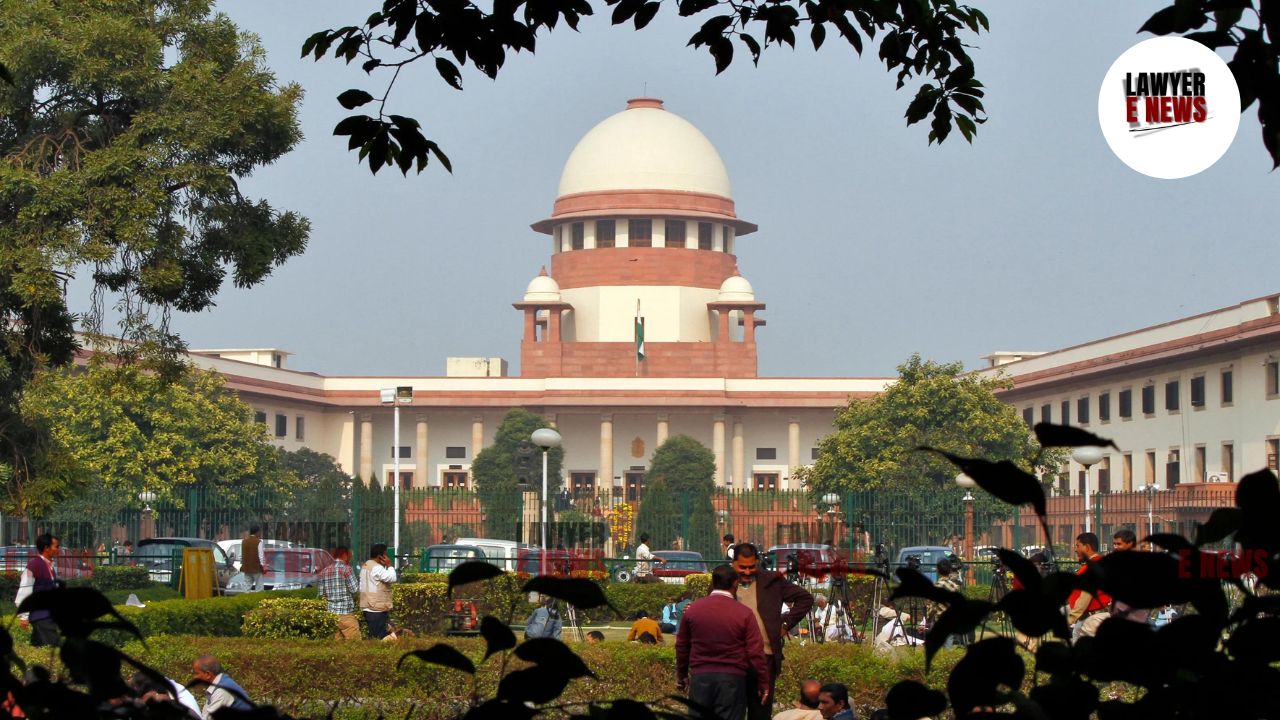-
by Admin
15 February 2026 5:35 AM



"If a ‘fit person’ is not appointed as a Judge Advocate, the proceedings of the Court Martial cannot be held to be valid, and its findings cannot be legally upheld." – Justice Prashant Kumar Mishra, Supreme Court of India.
In a significant ruling, the Supreme Court has dismissed an appeal filed by the Union of India challenging a decision by the High Court of Punjab & Haryana that invalidated the General Court Martial (GCM) proceedings against Lt. Col. Rahul Arora. The officer had been dismissed from service after being convicted by a GCM for charges including altering a medical document and absenting himself without leave. The High Court quashed the dismissal on the grounds that a junior officer was appointed as the Judge Advocate in the GCM, violating legal procedures.
Lt. Col. Rahul Arora, a medical officer in the Army Medical Corps, was charged with three offenses:
Altering a Medical Document: He allegedly altered the medical status of a recruit from “unfit” to “review after 15 days” for extraneous considerations.
Absence Without Leave: He was found guilty of unauthorized absence from April 11, 2004, to April 19, 2004.
Conduct Unbecoming of an Officer: He was charged with conduct not befitting an officer of his rank.
After being convicted by the GCM, Lt. Col. Arora's appeal before the Armed Forces Tribunal (AFT) was dismissed, following which he approached the High Court.
The case turned on a key procedural flaw: the appointment of a Judge Advocate junior in rank to Lt. Col. Arora. According to military law, a Judge Advocate overseeing a court martial should not be of a lower rank than the officer on trial unless justified by specific exigencies of public service, and such justifications must be documented.
The High Court found that the convening order appointing the Judge Advocate had been altered after it was issued to include a justification for appointing a junior officer. This alteration was deemed unauthorized, and as a result, the court martial was declared invalid.
The Union of India argued that there was no absolute prohibition on appointing a junior officer as Judge Advocate, provided exigencies of public service were considered. However, the Supreme Court upheld the High Court’s decision, agreeing that the altered convening order violated the procedural safeguards established in the case Union of India & Anr. vs. Charanjit Singh Gill.
In Charanjit Singh Gill, the Court held that appointing a junior officer as Judge Advocate without proper justification undermines the fairness of the trial. The Supreme Court emphasized that the integrity and independence of the Judge Advocate are crucial in court martial proceedings, as their advice significantly influences the court's decisions.
Procedural Safeguards: The failure to record reasons for appointing a junior Judge Advocate in the initial convening order rendered the court martial proceedings invalid.
Judge Advocate’s Role: The Judge Advocate plays a pivotal role in advising the GCM, and appointing an officer of lower rank compromises the accused’s dignity and the fairness of the trial.
Rule 103 of the Army Rules: The Union’s reliance on Rule 103, which allows for minor irregularities in the appointment of a Judge Advocate, was rejected. The Court noted that Rule 103 does not apply when a person unfit for the role is appointed, as seen in this case.
The Supreme Court’s ruling underscores the importance of procedural rigor in court martial proceedings, particularly concerning the appointment of Judge Advocates. The decision reinforces the principle that military officers facing trial are entitled to fair and dignified treatment, which includes being tried by a court composed of officers of equal or higher rank. The ruling also serves as a precedent for similar cases where the legality of court martial procedures is challenged.
Date of Judgment: September 9, 2024
Union of India & Ors. vs. Lt. Col. Rahul Arora
